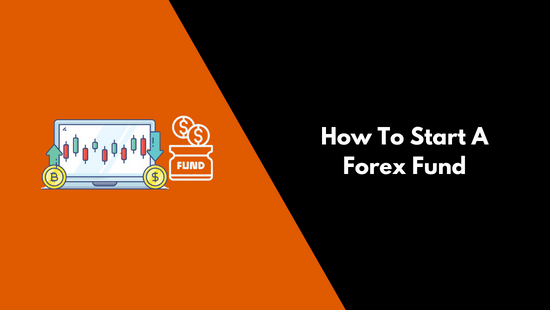
Hey there, Forex traders! Are you looking to take your trading game up a notch? If so, I’ve got the perfect solution for you: starting a forex fund. It’s an exciting opportunity that can offer tremendous rewards – but it also comes with some unique challenges and considerations. In this article, I’m going to provide insight into how to get started on the right foot when launching your own forex fund. From understanding regulations to selecting strategies and finding qualified investors, we’ll cover everything you need to know about getting off the ground. So let’s dive in!
Contents
Legal Requirements For Starting A Forex Fund
Starting a Forex Fund isn’t as easy as setting up shop on the corner and opening for business. There are many legal steps that must be taken to ensure compliance with both national and international laws. This is especially true if you’re looking to open a fund in multiple countries or jurisdictions, since each one will have its own unique set of regulations and guidelines.
When it comes to starting your forex fund, there’s no room for guesswork – getting it right from day one is paramount. Fortunately, understanding the legal requirements for launching a successful forex investment venture doesn’t have to be daunting. With an experienced team of lawyers who specialize in forex investing regulations, you can rest assured that your fund is operating within all applicable laws. They’ll help you navigate everything from registering with financial regulators to obtaining licenses and permits necessary for conducting foreign exchange transactions across borders.
Strategies For Profitable Forex Trading
When it comes to Forex trading, strategies are the key factor that determines success. As a trader, I have found two approaches to be especially effective: fundamental analysis and technical analysis.
Fundamental analysis involves studying macroeconomic factors such as inflation rates, interest rates, GDP, unemployment figures etc. These pieces of data can provide an insight into how different countries’ economies are doing and help you decide which currency pairs to trade in order to maximize profits. On the other hand, technical analysis focuses on analyzing past price movements and using them to predict future trends. This approach is particularly useful for short-term traders looking to capitalize on market volatility.
No matter which strategy you use, the most important thing is to stay disciplined and stick with your plan. Do not get carried away by sudden swings in the market or jump onto every opportunity out there; instead focus on executing your trades according to your pre-defined rules and objectives. With enough practice and patience, profitable forex trading will become second nature!
Weighing The Risks Of Forex Investing
When it comes to investing, forex trading carries certain risks that must be taken into account. Knowing the possible rewards and potential pitfalls of currency trading is an essential part of successful forex fund management. Here are a few key points to consider when weighing the risks associated with forex investing:
- Forex Risk Management: When trading currencies, risk management should always come first. It’s important to develop a solid strategy for limiting losses while also maximizing profits. This means setting up stop/loss orders, diversifying portfolios across different markets, and understanding leverage ratios.
- Foreign Exchange Risks: The foreign exchange market is highly volatile due to its global reach and 24-hour nature. As such, it can be difficult to manage large positions or take advantage of short-term opportunities without incurring substantial losses from sudden shifts in prices.
- Currency Trading Risks: In addition to daily fluctuations in rates, there is also the possibility of fraud on unregulated online platforms as well as counterparty defaulting on trades if they don’t have sufficient funds available. It’s important to do your research about any broker you plan on using before committing capital for trading activities.
- Leverage Ratios: Leverage allows traders to increase their exposure with minimal upfront capital but can lead to more significant losses if not managed properly. Understanding how much leverage your position requires will help ensure that you aren’t taking too much risk relative to the size of your portfolio.
The most effective way of managing foreign exchange risk is by educating yourself on all aspects of forex investments and understanding what strategies work best for each situation. Even experienced investors need to stay informed about changes in the marketplace so they can adjust their strategies accordingly and minimize potential losses over time. With proper planning, knowledge and experience one can successfully navigate through a world of opportunity presented by Forex investing!
Conclusion
Starting a forex fund is an exciting venture that requires dedication and knowledge. However, there are several legal requirements to consider before launching your business. It’s essential to understand the risks of trading in foreign currency as well as develop profitable strategies for navigating the markets. With this information you can make informed decisions about how best to proceed with setting up your own forex fund.
As a budding Forex trader I know all too well the importance of being prepared before taking any risks. Whether it be researching new trading methods or understanding market trends, these small steps are necessary if you want to stay ahead of the game and come out on top! The key is to remain focused and disciplined throughout your journey towards success so that no matter what happens, you will have built a solid foundation for yourself and your fund.
With proper planning, research and preparation, starting a forex fund can be extremely rewarding – both personally and financially. Taking calculated risks while also keeping safety first is my mantra when it comes to making money from trading currencies. Don’t forget: investing in anything always has its challenges but when done properly, the rewards can be huge!



